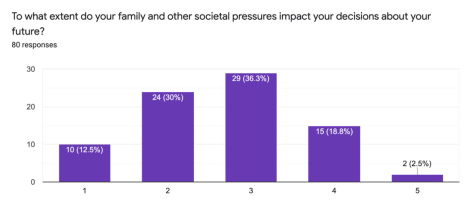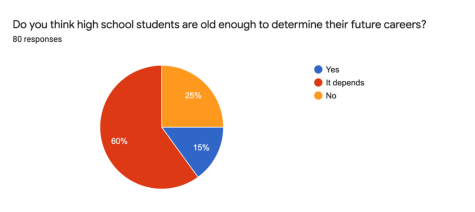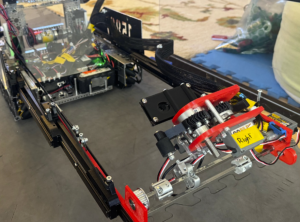The Future Career Paths of BCA Students
October 20, 2022
To an onlooker, it can appear that students at the Bergen County Academies—who already selected an academy (major) when applying to the school—are certain about their future careers. However, this is not always the case. In fact, a survey last year revealed that many BCA students are unsure about their future careers.
When analyzing the breakdown of undecided students, there seemed to be no correlation between grade level and career decisions. Approximately 20% of both the ninth and twelfth grade respondents were uncertain of the career field they wanted to pursue in the future. This is despite the fact that most seniors had already committed to a college, a decision that typically takes one’s expected major into consideration.
Of course, the majority of students did know what career path they wanted to take. Students tend to stick with a field pertaining to their academy, although it is important to note that many students—especially those in the Engineering and Culinary academies—do choose to switch fields after high school.
A variety of factors contribute to the career decisions of high school students.
Many decided students discovered an interest in one field after exposure to many, but some selected their field because it is the only one they were ever exposed to.
As a student in the Art academy said, “As much as I love art, who knows if I was built to be a lawyer or architect?” She and others expressed concern that selecting and focusing on a field at an early age might prevent a person from discovering another love or talent.
Undecided students were also asked what factors make the decision difficult. For most, the reason for uncertainty lies in the diversity of their interests or the financial stability of their true passion.
Additionally, students appear to balance their own wishes with the expectations of family members when making decisions, adding another level of complexity to an already difficult decision. While most respondents agreed that family has some impact on their career choices, only two said their family completely dictates their future.

“When I told my parents I wanted to be a teacher,” said one student, “they said they would support me [in any other career path], which is upsetting because… I have always dreamed of [teaching].”
As adolescents, many students have changing interests, but because of the limited number of seats available in each academy and structure of the admissions process, students are unable to switch academies at BCA.
“I regret my academy choice, as I no longer wish to pursue it,” one respondent said. “I don’t enjoy academy-related courses, and I would benefit more from being able to explore other options instead of being forced to take classes I neither like nor am good at.”
However, one student pointed out that many students go through high school without a focused academy and “pay thousands of dollars in college to find out they hate [their major] instead of finding out for free in high school.” Considering half of the respondents that know what field they want to pursue figured it out in high school, it does appear that BCA’s academy system helps students narrow their career field.
While some see BCA’s academy system as a way to decide whether a field is for them, others see it differently. One student said academies give students “who should already know what field they want to pursue from middle school a better idea of what specific job they want in the future.” If this is the goal of the academy system, it seems unsuccessful as only three in every ten students claimed to know their exact dream job.
At BCA, students not only have the opportunity to delve into a field they initially express interest in, but they can also explore other fields through electives, clubs, research, and internships. These allow students to experiment with and narrow their interests in order to select a career field in time for college applications.
Despite all this, only 15% of the student body believed high school students are capable of determining their future careers, and most students realized this question isn’t black and white. As many respondents commented, each person has their own interests and ambitions and should be given the time they need to make their decision.

So, what is the solution? One student suggested “the process for changing [college] majors should be simplified.” Others suggested flexibility in other ways, such as making the academy system at BCA less rigid or reducing the stigma around going to college with an undecided major.





